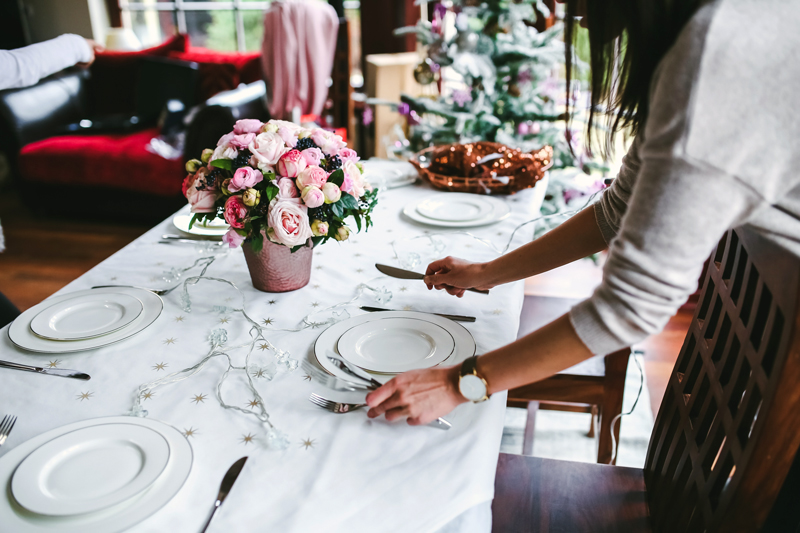by Ricky Chelette
Thanksgiving is a wonderful time of the year. It is probably my favorite holiday because it seems to lack the commercialism and preoccupation with money that often dominates Christmas.
But I know that for many who struggle with same sex attraction or have family members who struggle or are gay-identified, the holidays can be a stress-creating, anxiety-filled time.
There are no easy answers when negotiating familial relationships. What works for one family may fail miserably for another. Family dynamics can be like a house of cards for many. But there are ways to get through the holidays without world war III breaking out. Here are just a few things I have found to be helpful.
- Talk honestly about expectations. Let everyone know what the plans are, what you expect to take place and what is expected of them. If your gay-identified child is coming home with their partner, let them know ahead of time what the expectations are and what you will and won’t allow. Be loving. Show mercy and grace. And most of all, seek to exemplify Jesus in all you do. It is your house and you do get to make the rules, just be sure you apply them to everyone attending, straight, gay or otherwise.
- Have realistic expectations. Far too often our biggest source of discouragement is our own sense of entitlement forged on the anvil of unrealistic expectations. You know your family and you know your friends. Don’t expect longstanding hurts or childhood traumas to be resolved on this trip. Don’t expect your parents or your loved one to act in ways that they don’t normally act. Don’t expect that somehow this visit home is going to resolve whatever difficulties you may have with your family. If you go in with those kinds of expectations you are surely going to be disappointed. Simply go to be present, to share life, and to enjoy the company of those who share a common ancestry and life connection.
- Avoid the drama. Let folks know this is a time to gather together, express gratitude for each other and to God, and enjoy each other’s company. Drama will not be allowed and seek to avoid the “trigger points” that so often set everyone off in bickering and disagreement.
- Practice hospitality. Be a gracious host not a manipulative schemer. This is not the time to work out the difficulties of past relational wounds and unrealized dreams. It is a time to enjoy the moment, the now, the fact that we are still alive and breathing and sharing the company of others. Savor the moments. All too soon we realize how short and precious these moments are.
- Be a good guest. If you are going home, honor your parents and family by respecting them, their practices, and their beliefs. If I were invited to the home of a Jewish friend I would not launch into a diatribe about my personal beliefs about Jesus being the only way to heaven. If asked, I would not deny Him, of course, but knowing where they stand, I would do my best to honor their beliefs and practices. The once-a-year extended family gathering may not be the best time for you to share your newfound understanding of the trinity, however correct it might be. Of course, be sensitive to the Spirit of God, particularly as it relates to presenting the Gospel, but discretion is always the better part of valor. Plant a seed. It may not be the best time to harvest the entire crop.
- Be other-focused. One of the great characteristics of Christ was His focus on others and not Himself. 1 John 3:16
says, “This is how we know what love is: Jesus Christ laid down his life for us. And we ought to lay down our lives for our brothers and sisters.” Jesus said, “great love has no man than this that he lay down his life for his friends.” (John 15:13
). Putting others first and seeking to serve them, rather than being served, is a true mark of the Christian faith. How can you serve your family and honor them? It’s really NOT about you, really its not.
- Be positive. We all can choose to see the glass half full or half empty. Those who see it half empty always focus on the negative. They patiently wait for the wrong thing to be said, the wrong gesture to be made, or the wrong tone to detected. Instead, pray, believe, and hope for the best. Be positive and assume the best about everyone. Don’t look for the hurt or the jab, and decide ahead of time that you are going to wear a bit of Teflon. Let stuff slide off you that might otherwise sting and practice the kind of love we see in 1 Cor. 13
:
“4 Love is patient, love is kind. It does not envy, it does not boast, it is not proud. 5 It does not dishonor others, it is not self-seeking, it is not easily angered, it keeps no record of wrongs. 6 Love does not delight in evil but rejoices with the truth. 7 It always protects, always trusts, always hopes, always perseveres.”
Keeping these few simple things in mind can be the difference between a wonderful time of family and friends, and a horrific time of drama and turmoil.
Loving real people with real problems and real hurts is never easy, but it is what we are called to do. We are promised that, “Love never fails.” (1 Cor. 13:8
My prayer is that the holidays might be a wonderful time of simply being together and sharing life. It might just be the beginning of renewed relationships and mended hearts.

